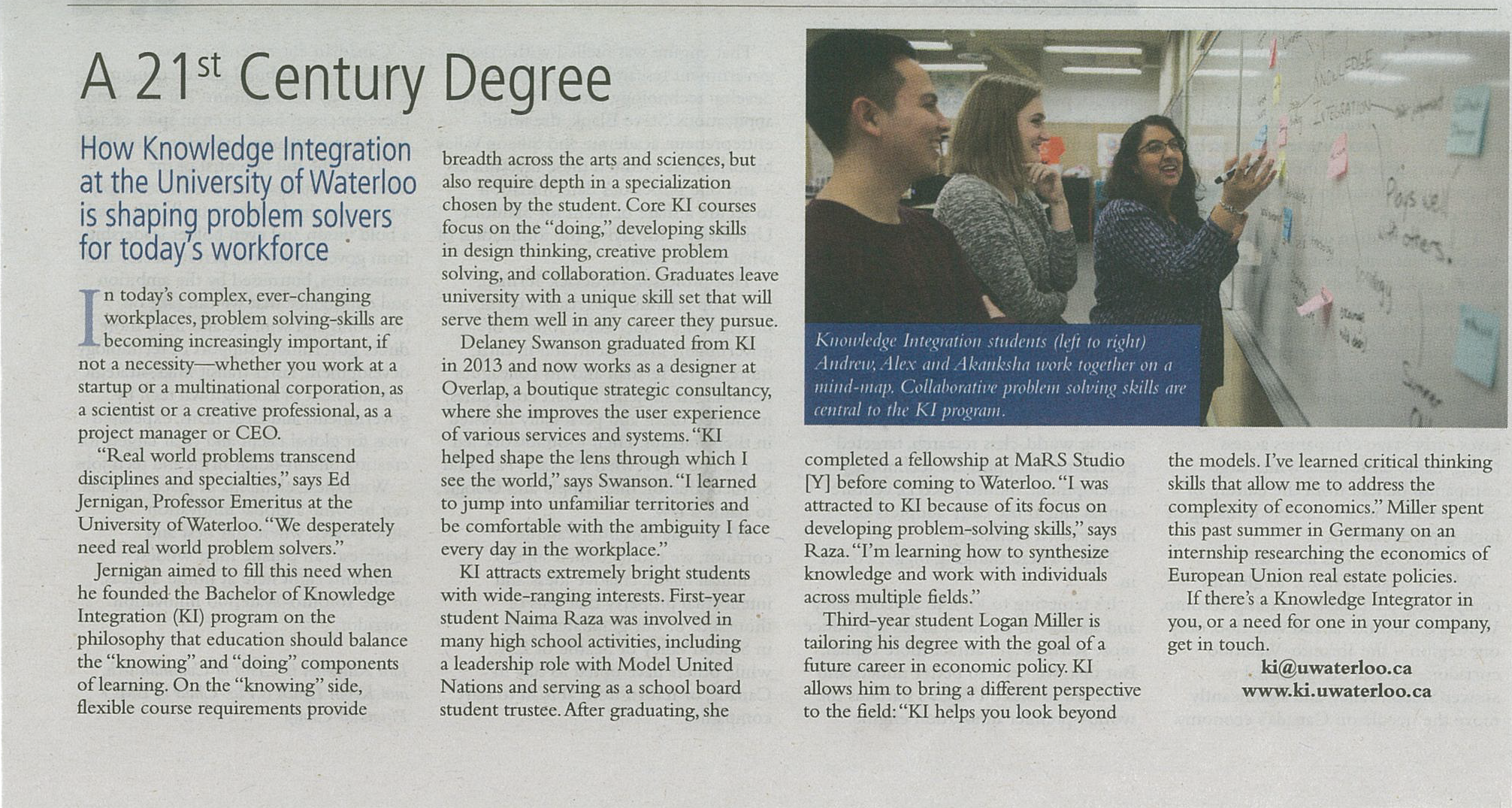How the Bachelor of Knowledge Integration is shaping problem solvers for today’s workforce

In today’s complex, ever-changing workplaces, problem solving-skills are becoming increasingly important, if not a necessity—whether you work at a startup or a multinational corporation, as a scientist or a creative professional, as a project manager or CEO.
“Real world problems transcend disciplines and specialties,” says Ed Jernigan, Professor Emeritus at the University of Waterloo. “We desperately need real world problem solvers.”
Jernigan aimed to fill this need when he founded the Bachelor of Knowledge Integration (KI) program on the philosophy that education should balance the "knowing" and "doing” components of learning. On the “knowing” side, flexible course requirements provide breadth across the arts and sciences, but also require depth in a specialization chosen by the student. Core KI courses focus on the “doing,” developing skills in design thinking, creative problem solving, and collaboration. Graduates leave university with a unique skill set that will serve them well in any career they pursue.
Delaney Swanson graduated from KI in 2013 and now works as a designer at Overlap, a boutique strategic consultancy, where she improves the user experience of various services and systems. "KI helped shape the lens through which I see the world,” says Swanson. “I learned to jump into unfamiliar territories and be comfortable with the ambiguity I face every day in the workplace."
KI attracts extremely bright students with wide-ranging interests. First-year student Naima Raza was involved in many high school activities, including a leadership role with Model United Nations and serving as a school board student trustee. After graduating, she completed a fellowship at MaRS Studio [Y] before coming to Waterloo. "I was attracted to KI because of its focus on developing problem-solving skills,” says Raza. “I’m learning how to synthesize knowledge and work with individuals across multiple fields."
Third-year student Logan Miller is tailoring his degree with the goal of a future career in economic policy. KI allows him to bring a different perspective to the field: “KI helps you look beyond the models. I’ve learned critical thinking skills that allow me to address the complexity of economics.” Miller spent this past summer in Germany on an internship researching the economics of European Union real estate policies.
If there’s a Knowledge Integrator in you, or a need for one in your company, get in touch.
One degree. Endless opportunities. Meet 3 more of our students!